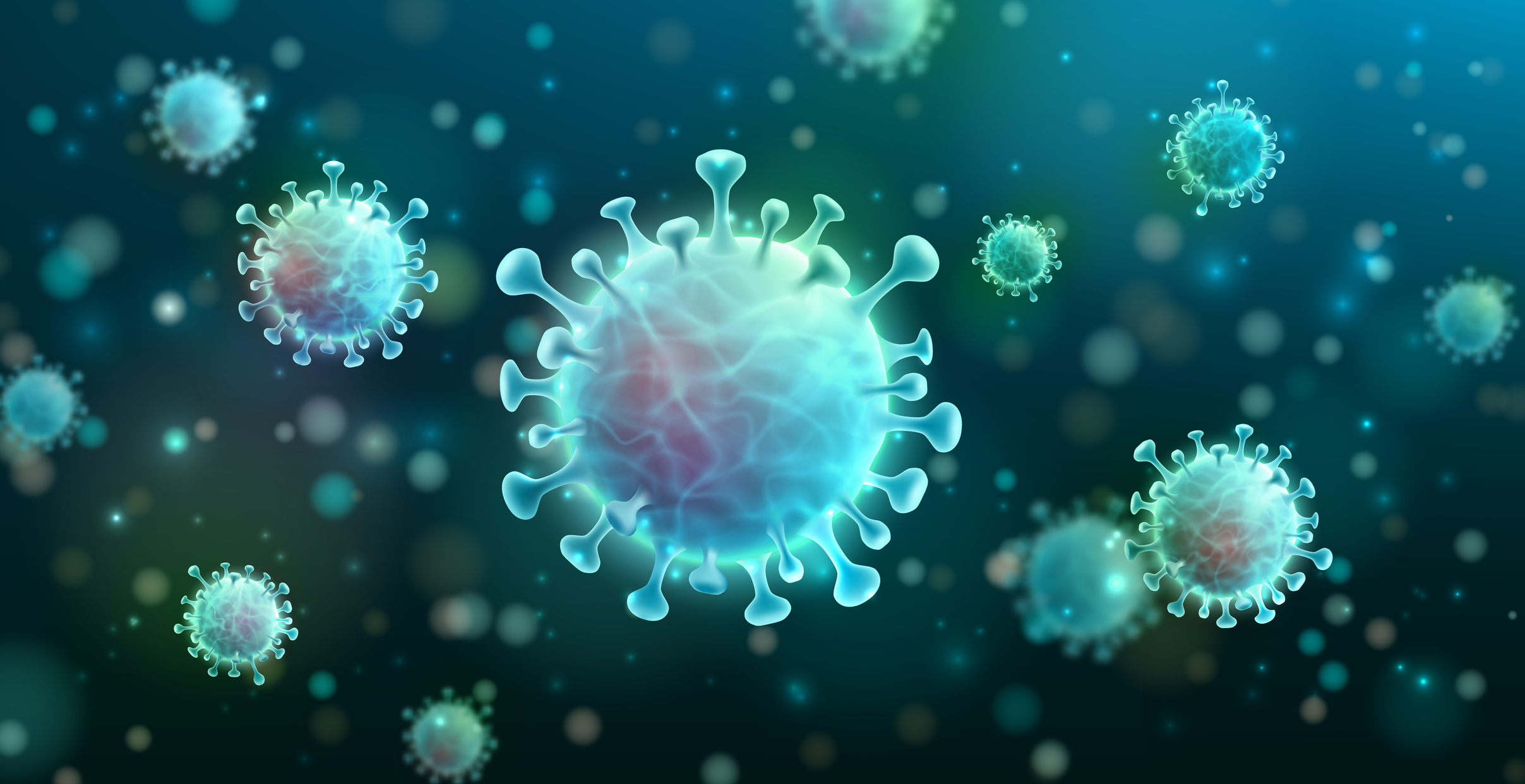Will the constant mutation of the coronavirus win to vaccines?
1:25
(CNN Spanish) -
We are about to end the second year in which the world lives with the new coronavirus.
In 2021, a large part of the population was able to receive the covid-19 vaccine, although inequity in access to it remains a pending issue.
Also, countries and scientists have had to deal with the appearance of variants of concern and with it, new waves of contagion.
In this episode, Dr. Elmer Huerta recounts what we learned about the virus this year and what the pandemic will bring us in 2022.
You can listen to this episode on Spotify or your favorite podcast platform, or read the transcript below.
Hello, I am Dr. Elmer Huerta and this is your daily dose of information about the new coronavirus, information that we hope will be useful to take care of your health and that of your family.
In this last episode of the year we will take stock of some of the lessons learned in the fight against the pandemic during 2021. We will also see what to expect next year, the third of the great pandemic of 2019.
advertising
To begin with, like any important event in life, it is always important to review the steps taken, that is, to look in the rear view mirror.
First lesson of the coronavirus in 2021: the inequity of vaccines
The month of December 2020 offered us a sample of two important events that have greatly affected the pandemic during 2021: vaccines and variants.
After Pfizer's vaccine was given emergency use authorization by the US Food and Drug Administration (FDA) on December 11, 2020, and on December 14, nurse Sandra Lindsay became the first person vaccinated in the country, the world waited with enormous expectation and anxiety for a similar vaccine to reach the nearest health center in their country.
Little by little, the long-awaited vaccines became available in the countries that were able to buy them and we came across the first great lesson of the year: inequity in their distribution.
Who has access to vaccines?
As we heard in the episode of December 17, 2020, while the poorest countries on the planet looked at the unaffordable vaccines from afar, the rich countries hoarded all the vaccines they could, having vaccines for two or three times their population .
This led, as we mentioned in the episode of May 18, 2021, that the Covax initiative, a global project led by the WHO, the Vaccine Alliance (GAVI) and the Coalition for Innovations in Epidemic Preparedness (CEPI) It fell into crisis because the rich countries had not collaborated with the collection of the necessary vaccines to be distributed in the poor countries.
But in addition to this cruel inequity in their distribution, in 2021 we had a bittersweet lesson about vaccines: on the one hand, their lack of complete effectiveness in preventing symptomatic infections and, on the other hand, their great effectiveness in protecting against serious cases and The deaths.
Childhood vaccines
When the world awaited the development of vaccines during 2020, both scientists and the public expected that vaccines against covid-19 would behave like childhood vaccines, that is, that they would provide lasting protection for many years against the new coronavirus.
But as we explained in the episode of July 10, the world was given a huge surprise: the Pfizer laboratory reported that, according to data obtained in Israel, it had been discovered that the effectiveness of its vaccine to protect against the disease symptomatic caused by the recently appeared delta variant, had decreased from more than 90% to 64%
In other words, that showed us for the first time that vaccines were not capable of providing lasting protection.
In view of this finding, Pfizer asked the FDA for authorization to administer a third dose of its vaccine, six to twelve months after the second, a booster that increased the levels of neutralizing antibodies 5 to 10 times more than those achieved with 2 dose.
Booster doses of the covid-19 vaccine
It was the first time we had heard of a third dose of the covid-19 vaccine.
Little by little, it has been documented that all the vaccines in use have lost their effectiveness in protecting against the variants of the new coronavirus, which is why at this time the administration of a third dose is the norm in many countries.
What's more, Israel became the first country on December 21 to authorize the use of a fourth dose of the vaccine for people over 60, health workers and people with decreased immunity.
This decrease in the effectiveness to prevent infection has occurred because the vaccines in use were initially prepared to act against the original wild virus spike from Wuhan, and it was not expected that the virus would mutate so rapidly, causing a significant loss of effectiveness.
To conclude with the issue of vaccines, this year we have also learned that in the world there has been a huge division between those people who - for various reasons, but mainly because of the false news spread on a hyper-connected planet - reject vaccines and those that - following the scientific evidence - embrace them and get vaccinated.
The reality is that after almost 8,800 million doses of different vaccines against covid-19 administered in the world, the vaccine is considered safe and, as we mentioned, very effective to protect against serious disease and death, considering that, At this time, vaccines are the fundamental weapon in the fight against the pandemic.
Second lesson of the coronavirus in 2021: the variants
The other great lesson of the year, the one related to the enormous capacity of adaptation and change of the new coronavirus, also originated on December 14, 2020 when the Prime Minister of the United Kingdom Boris Johnson announced a series of strict restrictions caused by the spread of a new variant of the virus, which appeared to spread more easily and was up to 70% more transmissible than the original variant.
This was the first time that much of the world had heard the variant word.
A week later, on December 21, the WHO announced the identification of another variant, detected in South Africa, and different from that of the United Kingdom.
With this, the world already had two variants before the end of the first year of the pandemic.
As we explained in the episode of January 5, 2021, their presence was going to determine the course of the pandemic.
Subsequently, so many variants appeared that the WHO, in an attempt to avoid stigma against the country in which a variant was first identified, baptized them with the letters of the Greek alphabet in June.
The one found in the United Kingdom was called alpha, the one identified in South Africa, beta, and later others were identified, the most recent being omicron.
Latin America, due to the high circulation of the virus, is considered to have been the origin of three variants: gamma, identified in Brazil, lambda, identified in Peru, and mu, identified in Colombia.
The development of these variants has been one of the main lessons that the pandemic has left us in 2021. Due to its very high circulation in certain places, SARS-CoV-2 has become a formidable enemy, demonstrating an enormous capacity for mutation and adaptation to the human being, unknown if 2022 brings us other variants.
Third lesson of the coronavirus in 2021: contagion
The third great lesson that 2021 leaves us is related to the contagion of the new coronavirus.
In this 2021 we have learned that, although it is true that the virus can be transmitted through contaminated surfaces, that is not its main route.
During this year it has been completely clarified that covid-19 is a disease that is transmitted through very fine aerosols that are fired from the respiratory tract when speaking, singing, screaming, and obviously, coughing or sneezing.
This means that, in practical terms, the main mode of protection is the use of highly efficient protective masks, such as an N95, KN95 or a double mask, one being surgical and the other one made of fabric on top of it.
Another consequence of this knowledge is that it is no longer necessary to wash the bags or boxes of food that are bought in the markets, the hygiene of hands and surfaces must be strict, but not only to prevent covid-19, but also to prevent many other infectious diseases.
The year 2021 then, the second year of the pandemic, ends in a state of global alert for the appearance of the omicron variant, whose behavior will determine, to a large extent, what happens in 2022 and that the question can be answered: When will it happen? the pandemic?
The future of the pandemic
The best that could happen during 2022, the third year of the pandemic, is that covid-19 becomes an endemic disease.
As we heard in the episode of April 26, 2021, it means that the disease is constantly present in the community, but without the severe epidemics that were seen in the first two years.
Although at the time of writing this episode the severity of the disease caused by the omicron variant is unknown, if the data from South Africa is confirmed, that a person infected with this variant is less likely to be hospitalized and suffer a serious illness, It is possible that the virus has reached a balance with the human being and we are on the way to the endemic.
If to this element, that covid-19 became a milder disease, we add that in 2021 drugs have been discovered that can prevent the aggravation of patients at risk of complications, we will have better outpatient management of covid-19 in its endemic phase.
In this regard, on December 22, the FDA authorized the emergency use of Paxlovid from the Pfizer laboratory, a combination of two antivirals that has proven to be 89% effective in preventing an infected person, at risk of complications, from being admitted to the hospital. and can die.
In summary, let's see what the year 2022 brings us, but what has become clear is that humans, thanks to science, are managing to control the pandemic, which at the time of writing this episode has caused more than 276 million cases , and it has taken the lives of more than five million human beings on the planet.
Do you have questions about covid-19?
Send me your questions on Twitter, we will try to answer them in our next episodes.
You can find me at @Drhuerta.
If you think this podcast is helpful, be sure to subscribe for the latest episode on your account and help others find it by rating and reviewing it on your favorite podcast app.
And for the most up-to-date information, you can always head to CNNEspanol.com.
Thanks for your attention.
coronavirus









